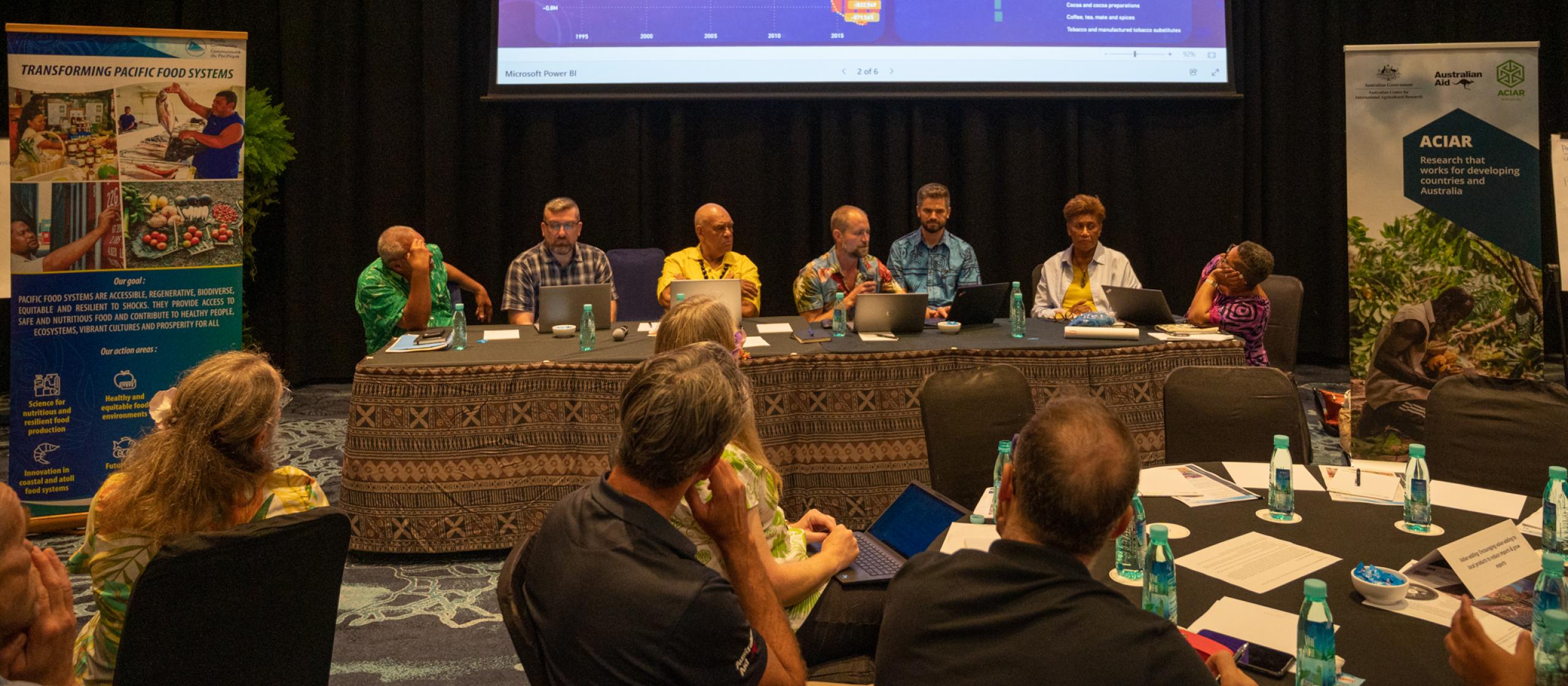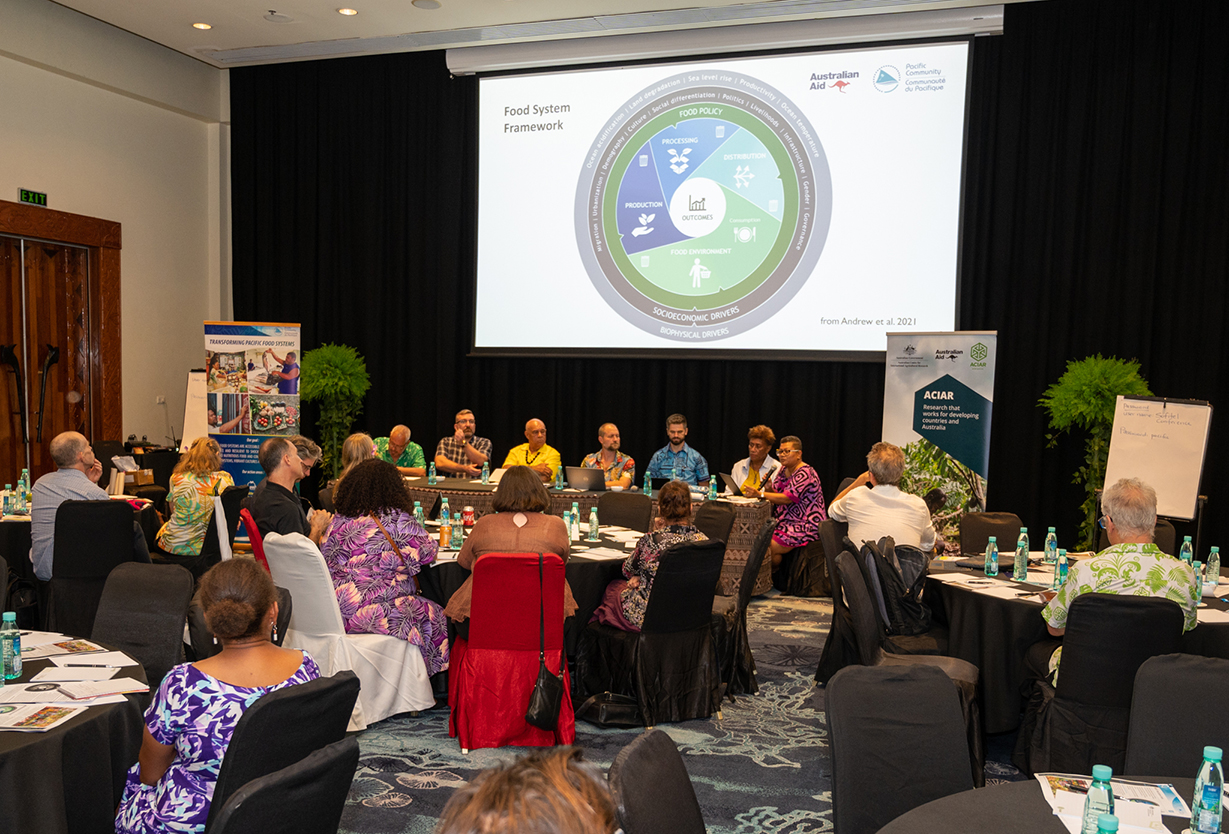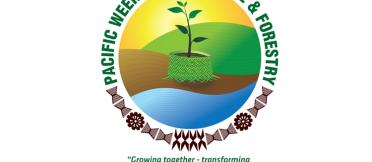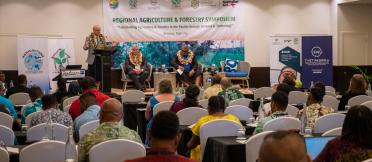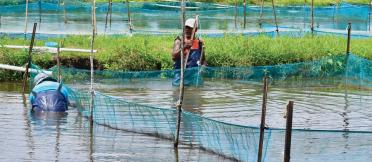The Pacific Week of Agriculture and Forestry (PWAF) was recently held in Nadi, Fiji from the 6 to the 10 of March. Several ACIAR staff attended. The PWAF is a valuable opportunity for ACIAR to discuss topics with Pacific partners on transforming Pacific agriculture and forestry sectors through research partnerships to achieve a more resilient and sustainable region. The PWAF event series provides an opportunity for Pacific member countries to drive the conversation and guide partners working with the region on their goals and work priorities for the following 2 years.
Across the week, there were several events including symposiums, networking opportunities such as breakfasts and dinners and more detailed sessions on cocoa and coconuts. The Pacific Heads of Agriculture and Forestry also met. The third Food and Agriculture Organisation (FAO) and The Pacific Community (SPC) Joint Agriculture and Forestry Ministerial Meeting was held towards the end of the week. The Fiji Government hosted these meeting with support from SPC and the FAO.
In addition to these events and meetings was the side event, or talanoa, focusing on Pacific food systems pathways, from promise to practice. SPC and the Australian Government, including ACIAR, CSIRO, DAFF and DFAT hosted this event. A talanoa is a particular method and style of communication where discussions are held in an inclusive, participatory and transparent way. It is common throughout Fiji and across the Pacific.
The side event aimed to advance conversations on Pacific food systems. Pacific food systems, whilst traditionally and fundamentally hinged on production in agriculture and fisheries (coastal food systems), are all-encompassing and include aspects of processing, trade and business, and consumption. In doing so, the agricultural and forestry sectors have had a huge transformational role in the food systems for Pacific Island countries.
